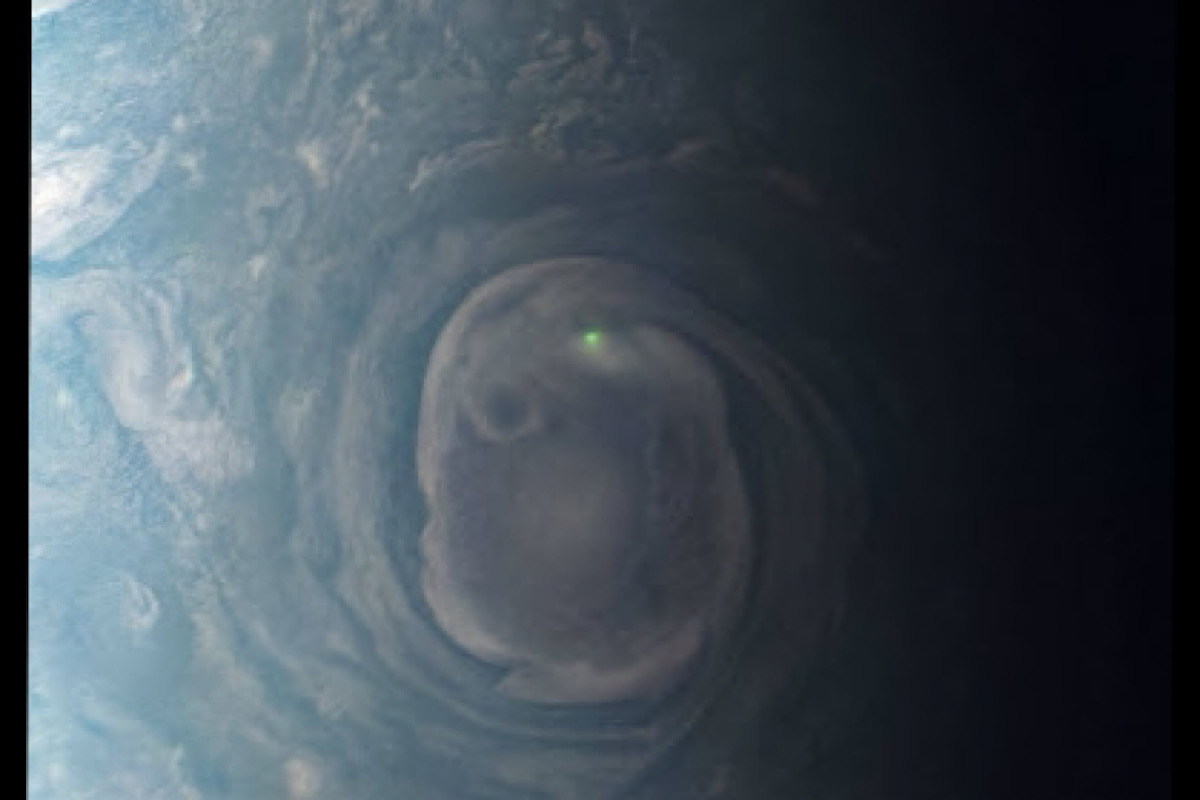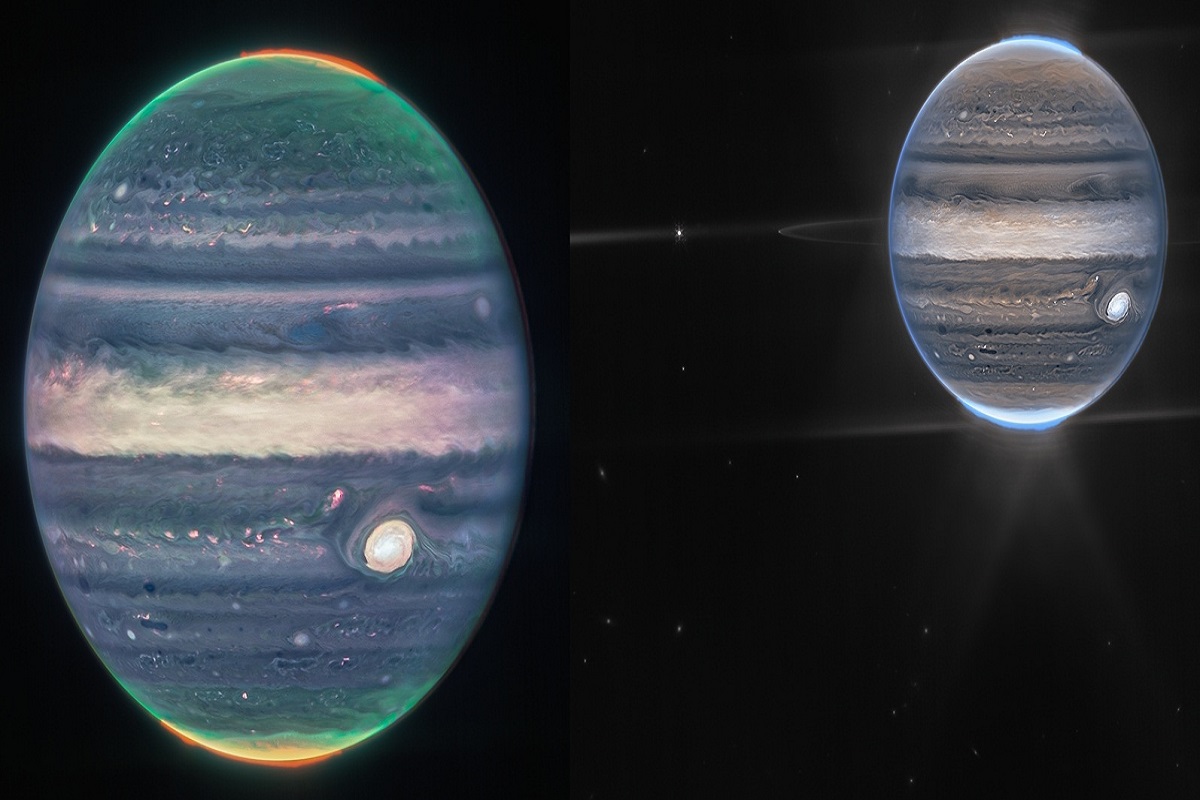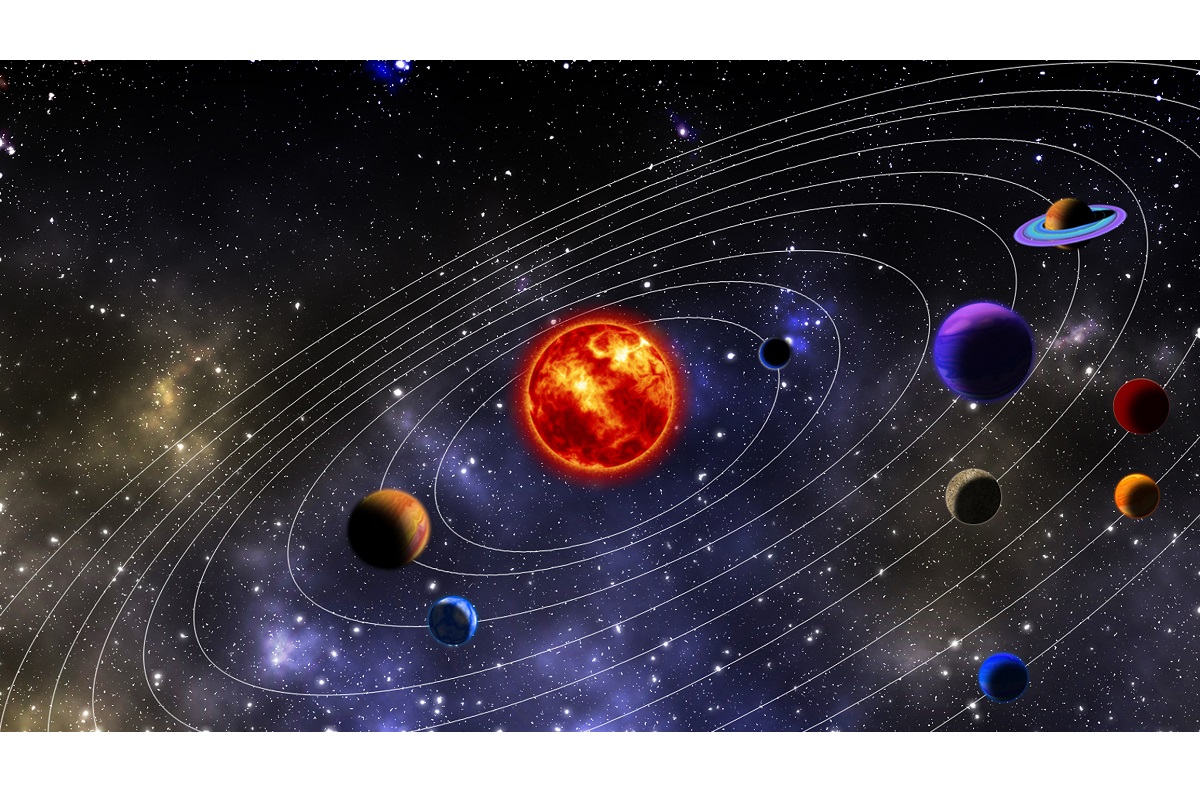NASA’s Juno mission captures lightning on Jupiter
NASA's Juno mission has captured lightning on Jupiter, the agency said.

NASA's Juno mission has captured lightning on Jupiter, the agency said.

NASA's Juno spacecraft, which has been orbiting Jupiter for six years, is dedicated to exploring the planet's surface and its moons.

With giant storms, powerful winds, auroras, and extreme temperature and pressure conditions, Jupiter has a lot going on.

When planets line up on one side of the Sun as seen up above the plane of our solar system is termed the first kind of planet parade.

The Jupiter-size planet is special for astronomers because its 261-day year is long compared to many known gas giants outside our solar system.
Skywatchers in Japan have observed a flash in the atmosphere of the planet's northern hemisphere likely caused by an asteroid slamming into Jupiter.
Most models of planet formation show that circumplanetary disks disappear within about 10 million years.
A prayer-field of ice may prevent a craft from alighting on Jupiter's moon, Europa.
We may not need to go far to find extra-terrestrial life after all.
NASA's solar-powered Juno spacecraft has beamed back a series of images of Jupiter's iconic Great Red Spot – revealing a…